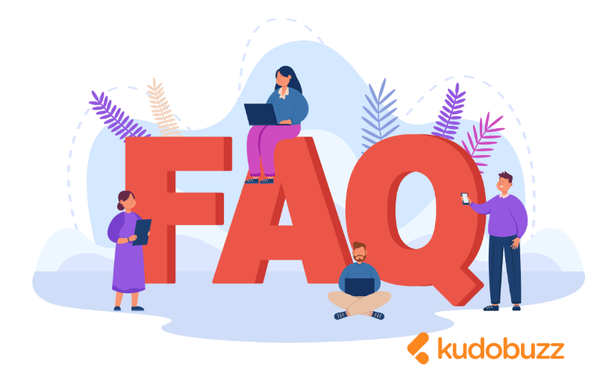As a new Shopify store owner or a beginner in the SEO industry, the moment you implement an SEO checklist for your store, the next expectation is that your site should be visible to searchers soonest.
While your expectation might be legit, let me be quick to burst your bubble that there isn’t a one-size-fits-all answer for the amount of time that it takes for content to rank.
However, some industry experts estimate that it takes an average of two - six months for a site to rank on Google and could even take a year or more in competitive fields.
At this stage, you might be wondering if the dollars and the time invested in boosting SEO for your Shopify store is a worthless adventure?
Confidently, that isn’t the case. In fact, the amount of time it takes for a page to rank is condition precedent on SEO factors, as well as, other non-SEO factors. So clearly, you know why SEO for Shopify store is very important in getting your site to rank.
Now let’s dive straight into factors that determine the amount of time a page takes to rank.
Web Authority
Implementing a good SEO on Shopify stores or any other store is always thought to be the key driving force for enhancing a site’s ranking. However, the age of a site’s domain has also been cited to be a powerful SEO factor. According to a study by Ahrefs, the most top 10 ranking pages are two to three years old. This means, the older your domain, the easier it is for your site to rank high. The same study also pointed out that only 5.7 per cent of all studied pages ranked in the top 10 in less than one year after they were created. This means that a “new” site is considered by search engines as less trustworthy or reliable than older sites that have been thoroughly verified. So, the age of a domain, even though a non-SEO factor, can influence the amount of time your site takes to rank.
(Image source: Ahrefs)
Despite this fact, some school of thought still hold that ranking all depends on how important a website is regarded by the search engines, thus, if a website contains very unique material that draws a lot of traffic, it will garner reputation fairly quickly, and this may boost its ranking even if it’s just two weeks old.
For example, if a website frequently publishes credible breaking news, stories about important personalities, events or historical artifacts that enables it to earn a lot of external links, it will enhance its ability to rank even if it’s a new domain.
You see, this reaffirms that you cannot ignore enhancing SEO for stores, especially if it’s a Shopify store.
Earn More Direct Traffic
The direct traffic your site enjoys has also been tipped to be a great factor that will determine how long your new content will take to appear on search result pages.
Direct traffic refers to visits with no referring website. Simply, it’s visitors that come to your site either by typing your website URL into a browser or through browser bookmarks. Any traffic that Google Analytics can’t recognize its source is regarded as direct traffic and could range from traffic from offline documents, like PDF, MS Word, etc., traffic from employees without filtered IP visiting your site, traffic from customers logging into a customer portal on your site, traffic from email marketing campaigns, etc.
According to this study, direct website traffic is the most influential ranking factor. This means that if your site earns more direct traffic, it has the potential to be ranked faster.
Furthermore, if you enhance the SEO for your Shopify store to enable your customers to remember your URL, it will make it easier for them to type your URL whenever they want to search your store enabling you to earn more direct traffic.
Choice of Keywords
Here too, the ability for content to rank has been heavily associated with the kind of keywords you choose. According to a study, popular keywords with high search demand are almost impossible to rank for in less than a year. Only 0.3 per cent of studied pages could actually achieve this. Words or phrases that are searched often are highly competitive and might take as long as 8 - 16 months at least to rank for a new site.
However, low or no competition keywords may take 4 months - 6 months to rank. The trick then is that if your site is new, it will be easier to build trust and rankings through keywords with lower levels of competition before moving on to more popular searches.
Apart from choosing keywords with low competition, you need to also ensure that your title tags also known as the page title, your meta description, alt tags and the body of the blog have the appropriate keywords to help search engines to easily understand what a page is about and then index it to enable it rank.
You may refer to this blog on how to research keywords for Shopify store.
Building Backlinks
One key SEO factor of helping your site to rank is boosting the authority of your pages through backlinking. Backlinking rides on the back of high-quality content. When you’re able to create high-quality blog content that’s well researched, lengthy, rich, comprehensive and easy to read, many external blogs will link to it. When more blogs link to a particular blog, search engines will automatically regard it as having authority; enhancing its ability to rank easily.
The same principle applies when a site earns a lot of links from other sites. When that happens, it enhances its ability to rank because search engines will regard that site as providing value to its users.
Thankfully, there are free tools such as the Backlink Checker which can help you find out who links to your site and your competition.
Quality Content
SEO for your Shopify store rides heavily on your ability to produce quality content to enable your site to earn a lot of links from external sites and quality traffic from visitors. The behaviour of your site’s visitors such as the time spent on the pages, bounce rate, click-through-rate, etc influences your site’s ranking because they assert authority or relevance to visitors.
Therefore, it goes without saying that, your site’s ability to frequently publish high-quality content has a strong influence on its ability to rank faster on search engines.
Social Media Promotion
After creating high-quality content, the next hurdle is to let people see the content. Social media comes in handy when it comes to content promotion.
For example, when a blog post enjoys a lot of shares on social media, it has the potential to reach a lot of people. This will lead to a lot of people reading a particular blog post, and if they find it useful, they will share it on many social media platforms which are likely to lead to other sites seeing and linking to it. This will drive more traffic to your site — helping the blog to rank.
Type of Content
Generally, high-quality blog content enjoys a lot of backlinks and shares on social media platforms which enhances the SEO for your Shopify store — ensuring your content gets ranked faster on search engines.
In addition, the type of content is also a factor that could determine the time needed for a particular blog post to rank. As already stated, content like breaking news, stories about certain historical artifacts or important personalities will rank faster than less attractive news items.
For instance, a blog post about the death of an international pop star like Michael Jackson will mostly rank faster than a write-up about say, vegetarian diet.
In the same way, the picture of a newly elected president of America with all its appropriate alt tags is likely to rank faster than the image of your company’s new logo.
Flawless Domain
Enhancing SEO for your Shopify store is governed by laws and violating these laws could get your site penalized or blacklisted.
Despite this warning, some people often try to cheat the search engines ranking system by engaging in unethical practices such as keyword stuffing and buying of inbound links. When search engines detect such practices, they penalize such offenders which affect their ranking.
Submitting Your Site To Search Engines
After verifying your domain with Google Search Console, the next step is to submit your URL to Google. Even though search engines have search bots called crawlers that aim to go round the internet to crawl and index every piece of new content, it takes between four days to four weeks for a new site to be crawled and indexed by Google. It is, therefore, recommended that you submit your sitemap after publishing or updating your site content. This will ensure that your content is indexed very fast to enable higher ranking..
In sum, there is no definite timeline for your content to rank even though multiple sources estimate that it could take 60 - 180 days depending on the competitiveness of your industry and the popularity of your keywords. Even so, enhancing the SEO for your Shopify store is still a great way in making your site more visible to searchers as explained above.
Call To Action
If you want to read more content on how to succeed as an e-commerce owner, sign up for our weekly newsletter to receive resources and tips on how to increase sales and revenue straight into your inbox.








